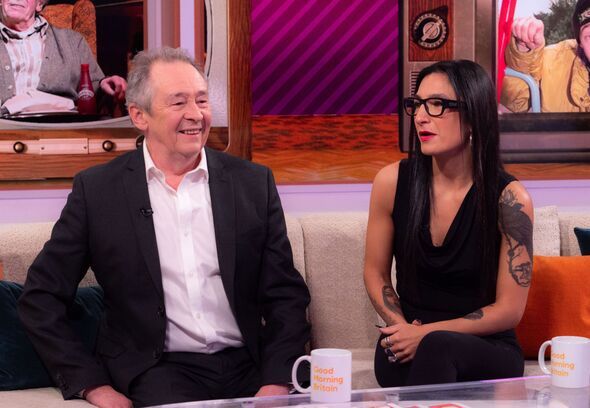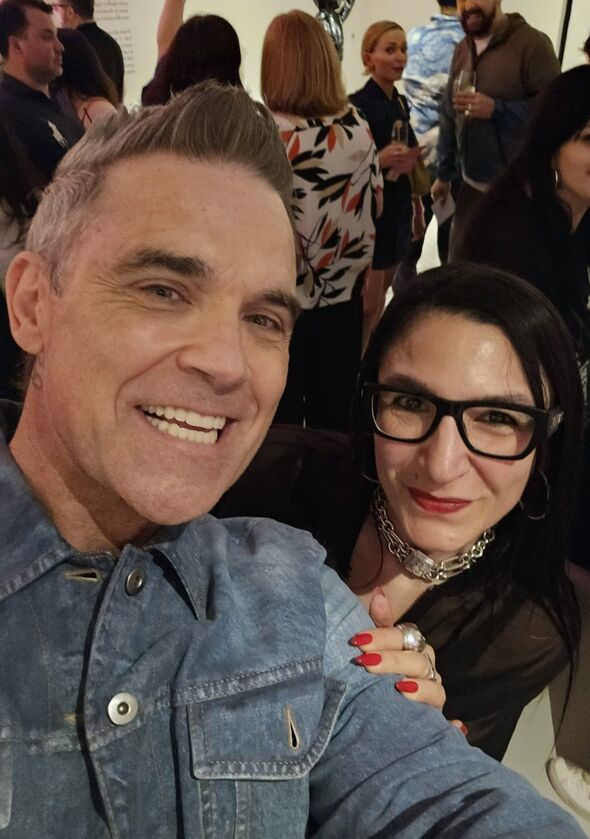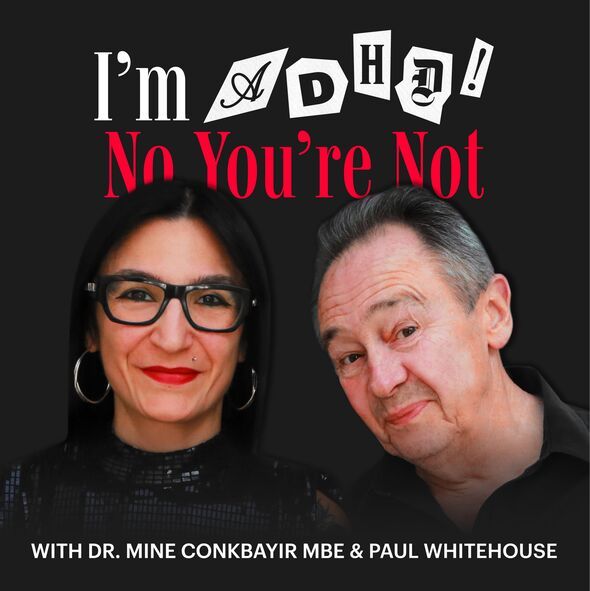

It's a familiar conversation up and down Britain as neurodivergent diagnoses boom: "I'm ADHD!" "No, you're not." In fact, there has been a 400% increase in people seeking a diagnosis of attention deficit hyperactivity disorder since 2020. As October is ADHD Awareness Month, some might argue we have far too much awareness already. Comedian Paul Whitehouse for one. The 67-year-old Fast Show star takes on the role of supportive sceptic in the trailblazing ADHD podcast he hosts with his wife, Dr Mine Conkbayir MBE, but his "devil's advocate" position opens up debate.
Season four is already under way with Robbie Williams as a star guest. The hugely successful podcast will see other celebrity ADHDers talking about the condition including Made in Chelsea's Sam Thompson and comics Sara Pascoe and Lucy Beaumont. Dr Conkbayir, 45, is an author, lecturer and trainer in early childhood and neuroscience. She has been married to Paul for the past five years and his partner for the past 20, and has personal experience of ADHD, having been diagnosed two years ago.
She and Paul, who share a daughter Delilah, 13, live in separate houses in North London because of her ADHD. "My sensory needs are completely different, and to my daughter's," she explains. "I need lights on all the time. I need noise and I mean 24/7. It's not enough to have the radio on. I've also got rave mixes, gospel anthems, but it's all at once."
Regarding their living arrangements, Paul has previously admitted: "A lot of people prick up their ears and gasp." But as Dr Conkbayir explains, there's no "blueprint" when it comes to marriage, you have to find what works. She says she endured a horrific childhood at the hands of her violent, drug-dealer father and admits, given past trauma and PTSD, it was difficult to unpick this from ADHD.
"It was a shock when I was diagnosed but it sort of fits. I do appreciate that people think ADHD is overdiagnosed, though. The definitions have become much wider and there is more awareness. What I object to is words like disorder and deficit, it's so negative. And we internalise that as ADHDers," she says. "Yes, it can be challenging and difficult but it doesn't mean there is something physically wrong with our brains like epilepsy or a brain injury."

The childhood expert believes there is too much medicating of ADHD, particularly in children, "to keep them quiet and more pliable". Instead, we should be looking for more positive ways to manage it. "People think these children are stupid or lazy but they aren't. Their brains just work in a different way," she explains. "Johnny Vegas says we're uniquely wired, which we are. It can be wonderful, liberating, exciting, the creativity we have that is unfettered, and it lends itself to so many things. But we live in a society unable to support children with ADHD in schools due to a lack of resources."
Dr Conkbayir uses the gym and journalling to quieten her busy mind and believes schools should be more geared up to support ADHDers with better access to whatever helps an individual child to cope and succeed.
Speaking about the podcast she makes with her husband, she explains: "Me and Paul talk to a host of celebrity ADHDers to demystify neurodiversity, exploring all its varying forms and how it impacts in different ways. I want to raise awareness and build understanding of what ADHD really is.
"We've got a wide range of female guests as well, and the one thing they all had in common was that they all misdiagnosed with anxiety and depression instead. We just need so much more research done on ADHD in girls and women, so that they are better supported, instead of being dosed up with the wrong medicines."
Guests on the podcast lay bare their own fears and foibles and offer tips on how they deal with the condition. Robbie Williams, for instance, describes his spiralling thoughts and anxiety as having "inside Tourette's" and admits he is an "Olympian at masking" his ADHD.

ADHD (attention deficit hyperactivity disorder) is defined as a neurodevelopmental condition characterised by a persistent pattern of inattention and or hyperactivity and impulsivity that interferes with day-to-day functioning. It affects how the brain works, impacting focus, controlling of impulses, and energy levels.
Symptoms, which typically begin in childhood but can persist into adulthood, can manifest as difficulty concentrating, being overly active, and acting without thinking. There are three presentations of ADHD: predominantly inattentive, hyperactive-impulsive, and combined. An estimated 2.6 million people have ADHD in the UK, according to the National Institute for Health and Care Excellence, suggesting that 3-4% of adults and 5% of children and young people live with it.
However, these are estimates and not formal diagnoses. The number of people formally diagnosed is lower, with around 741,000 children and young people in England alone estimated to have ADHD as of May
Dr Conkbayir says a favourite guest was Made in Chelsea star Sam Thompson, who she describes as "like a big rainbow, a bundle of positive energy". She says: "He revealed that ADHD medication didn't agree with him and pills can't be the only answer. I can understand when people think what is the point of a diagnosis when you are successful. But there are kids who need help and support now."
Paul adds: "We're very aware that for every successful person we drag on to explain their ADHD, there are countless others for whom it is an absolute nightmare."
Guests offer up all kinds of tips they have for dealing with it. Goldie, for example, takes cold showers leading up to ice baths. Dr Conkbayir concludes: "I want to break down the ignorance and lazy thinking. There is a lot of misinformation, particularly on social media, but I know the podcast has helped people and that is all we are trying to do."